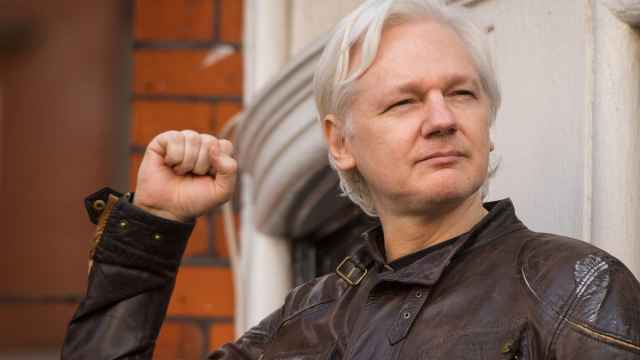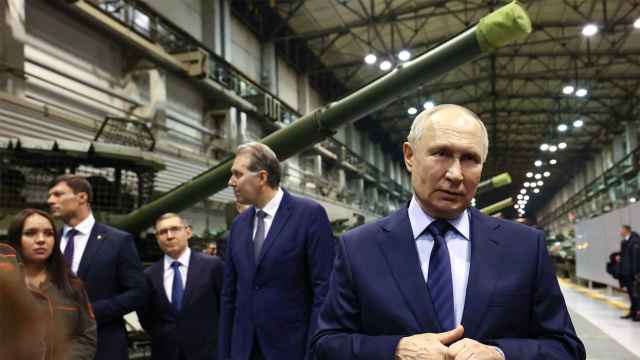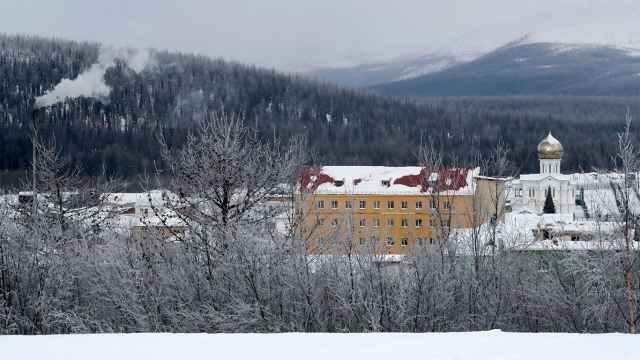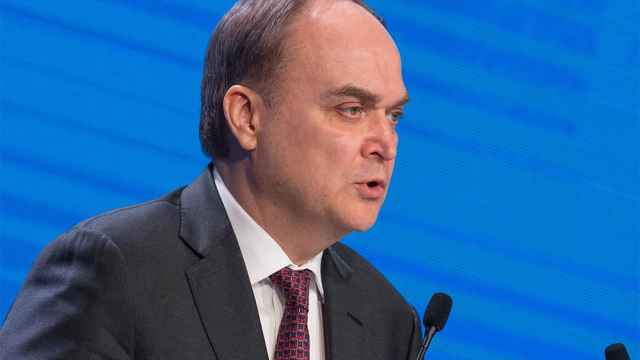Britain’s media regulator Ofcom revoked the license of Russian state-run broadcaster RT on Friday.
The removal of RT's license comes into place with immediate effect, meaning the Russian state broadcaster will no longer be able to broadcast in the UK.
“We do not consider RT to be fit and proper to hold a UK license and cannot be satisfied that it can be a responsible broadcaster,” Ofcom said Friday in a statement on Twitter.
RT started integrating itself into the British media sphere in 2009, launching a 24-hour news channel to offer viewers “an alternative to the mainstream view,” its then 29-year-old editor-in-chief Margarita Simonyan said. Its critics accuse it of being a major outlet of propaganda for the Russian government as well as spreading disinformation and conspiracy theories.
The channel has come under increasing pressure from British ministers since President Vladimir Putin launched an invasion of Ukraine on Feb. 24.
RT “must not be allowed to exploit our open and free media to spread poisonous propaganda into British homes,” British Culture Secretary Nadine Dorries said in the British Parliament on March 3.
Responding to Ofcom's decision Friday, RT's deputy editor-in-chief Anna Belkina said the regulator had a "facade of independence" but was "nothing more than a tool of government, bending to its media-suppressing will."
She added it had stated "purely political reasons tied directly to the situation in Ukraine" for its decision, which "robbed the UK public of access to information."
Kremlin spokesman Dmitry Peskov meanwhile called the ban a further example of European and American "anti-Russian madness" eroding freedom of expression.
"The world is a lot bigger and more complicated than Europe. And RT will continue to make its voice and its point of view heard, for those who want to see and hear it," he added.
Ofcom's decision to revoke RT's license comes amid 29 ongoing investigations by the British media regulator into the "due impartiality of RT's news and current affairs coverage of Russia's invasion of Ukraine."
The RT channel has been unavailable in the UK since March 2 after the British government suspended it amid the ongoing Ofcom investigations.
The news channel was removed from EU screens earlier this month, with European Commission President Ursula von der Leyen saying the ban will ensure RT is “no longer able to spread lies to justify Putin’s war.”
Since Russia launched an offensive on neighboring Ukraine last month, the state-backed media channel has seen a small exodus of its staff, with at least 14 employees leaving over concerns of the Kremlin's decision to wage war on Ukraine.
In an interview with the Times of London on Thursday, the head of RT's English-language Russia desk Bryan McDonald admitted his news desk "no longer exists."
The journalist had earlier apologized on Twitter for "getting it so badly wrong" regarding Russia's invasion, later stating "I clearly wasn’t as much of an expert as I thought I was.”
AFP contributed reporting.
A Message from The Moscow Times:
Dear readers,
We are facing unprecedented challenges. Russia's Prosecutor General's Office has designated The Moscow Times as an "undesirable" organization, criminalizing our work and putting our staff at risk of prosecution. This follows our earlier unjust labeling as a "foreign agent."
These actions are direct attempts to silence independent journalism in Russia. The authorities claim our work "discredits the decisions of the Russian leadership." We see things differently: we strive to provide accurate, unbiased reporting on Russia.
We, the journalists of The Moscow Times, refuse to be silenced. But to continue our work, we need your help.
Your support, no matter how small, makes a world of difference. If you can, please support us monthly starting from just $2. It's quick to set up, and every contribution makes a significant impact.
By supporting The Moscow Times, you're defending open, independent journalism in the face of repression. Thank you for standing with us.
Remind me later.






